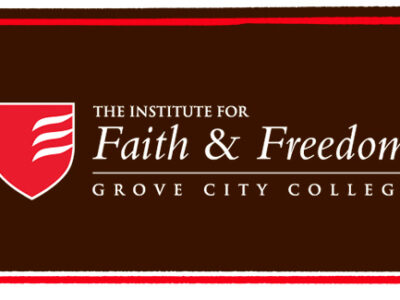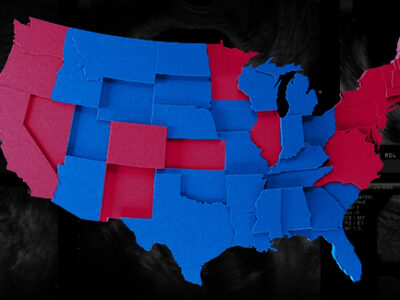“I’ve spoken of the shining city all my political life…. [I]n my mind it was a tall, proud city built on rocks stronger than oceans, wind-swept, God-blessed….”
—President Ronald Reagan,
Farewell Address, January 11, 1989
“’God Bless America?’ No, no, no, God d— America…. God d— America…. God d— America!!”
—Jeremiah Wright,
pastor to Barack Obama
Americans have always been religious, with a consistent majority attending religious services. The worldview and even politics of many Americans are shaped or reinforced by what they hear weekly from behind the pulpit, from the person of God they respect and usually admire. Pastors hold an immense responsibility, as they can mold a citizen and even that rarest of congregants with the extraordinary potential to become president of the United States.
Academics who study religion and politics talk about “civil religion.” Jean Jacques Rousseau maintained that no state had ever been founded without a religious basis. Citizens need a transcendent cause. For most typical states, civil religion is understood as an infusion of sacred principles drawn from a nation’s civil traditions and conventional, organized religion.
In American history, civil religion has been associated with positives images—America as a promised land, Americans as a chosen people. Many academics do not like how this fusing of the political and the religious can err toward self-righteousness, excessive patriotism, and imperialism. Of course, that’s a balance that a leader needs to keep in mind. Nonetheless, overall, this sort of civil religion perceives America positively.
To the contrary, there is another integrating of faith and politics that strays in the other direction—a kind of un-civil religion. This brand draws from America’s worst sins, real and imagined, to construct a terrible America, a force for hell and havoc—so bad that it deserves the worst calamities that befall it, like, say, September 11, 2001. Rather than an image of America whose first leader knelt in the snow of Valley Forge, here’s an America whose leaders manufacture crack-cocaine and the AIDS virus so they can kill black Americans.
This latter view of America is perpetuated by the Rev. Jeremiah Wright, pastor to Senator Barack Obama (D-IL), the frontrunner for the Democratic presidential nomination and quite possibly our next president. It is a toxic brew that we can only pray has not sunk into the marrow of the bones of Senator Obama. That insidious America might be contrasted with the kind of America that President Ronald Reagan learned about from the pulpit:
Reagan was heavily influenced by his pastor in Dixon, Illinois, a man named Ben Cleaver. Just down the road from the Rev. Jeremiah Wright, Cleaver had attended the University of Chicago. He was intellectual and patriotic, given to invoking the likes of Washington and Lincoln. In one such speech to the local American Legion in February 1927, Cleaver spoke of the decidedly different upbringings of the two presidents, emphasizing that neither man’s background, whether rich or poor, stopped him from making his mark on history.
Cleaver, a member of the Disciples of Christ denomination, was influenced by Alexander Campbell. For Campbell and other 19th century Disciples, America had a democratic mission to save the world from autocrats. Campbell declared the world “must look” to America “for its emancipation from the most heartless spiritual despotism ever.” “This is our special mission in the world as a nation and a people,” said Campbell, “and for this purpose the Ruler of nations has raised us up and made us the wonder and the admiration of the world.” He spoke of America as a “beacon,” a “light unto the nations.”
This was the kind of instruction that Ronald Reagan got from his pulpit. From there and his later own reading, he came to view America as “A Shining City Upon a Hill,” which he anchored in his understanding of the Old and New Testament and from his knowledge of what John Winthrop had proclaimed off the Massachusetts coast in 1630. The message Reagan took from Matthew 5:14-16 is especially telling:
You are the light of the world. A city on a hill cannot be hidden. Neither do people light a lamp and put it under a bowl. Instead they put it on its stand, and it gives light to everyone in the house. In the same way, let your light shine before men….
A nation that reflects God is not to be hidden under a bowl. That nation must share and bring the light to where it is needed—to cast it upon the darkness. For Reagan, that would mean (especially) upon the Soviet Union—a land he dubbed “the heart of darkness.”
Reagan wanted America to be a model for others, a guiding light, divinely blessed to proclaim liberty to the captives. He looked at America and saw liberation, not slavery and bondage.
While that’s the thinking Ronald Reagan took from his religious instruction, it is not the view of America that Barack Obama heard from his pulpit of choice over the last two decades—from the minister who married him, baptized his children, whose sermons provided the inspiration for the title of his bestselling book, and whom he calls his spiritual mentor. These are two strikingly different visions of America, poised to produce very different fruit.
Editor’s Note: An extended version of this article is posted at the American Thinker.




